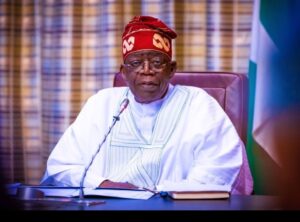No Plans to Turn Nigeria Into One Party State, Says Presidency
 The Nigerian presidency has emphatically rejected claims that President Bola Ahmed Tinubu is attempting to establish a one-party rule in the country, calling such allegations baseless and unfounded.
The Nigerian presidency has emphatically rejected claims that President Bola Ahmed Tinubu is attempting to establish a one-party rule in the country, calling such allegations baseless and unfounded.
The response comes amid growing concerns voiced by opposition leaders, particularly from the People’s Democratic Party (PDP), who have accused the ruling All Progressives Congress (APC) of undermining democratic institutions and consolidating power.
A statement issued by Bayo Onanuga, the Special Adviser to the President on Information and Strategy, dismissed accusations that President Tinubu is plotting to erode the country’s multi-party system.
Onanuga stressed that the strengthening of opposition parties is not a responsibility of the president. He further asserted that accusations of a one-party state were without merit and that the opposition is free to strengthen itself through democratic means.
“The president is committed to upholding the rule of law and has no intention of limiting the political space for opposition parties,” Onanuga said.
He pointed to the successful legal challenges in states like Osun and Bauchi, where opposition governors from the PDP were able to contest APC victories in the courts, as evidence of the administration’s respect for judicial independence.
These comments followed remarks from opposition figures, including former Vice President Atiku Abubakar, who have raised concerns about the dominance of the APC in Nigeria’s political landscape. Critics argue that the ruling party is making strategic moves to suppress political pluralism and limit the influence of rival parties.
In defending the government’s stance, Onanuga highlighted the fairness of the judiciary in settling electoral disputes and emphasized that Nigeria’s democracy remains intact, despite challenges from opposition forces. He called on political parties to engage in fair competition rather than pointing fingers at the president for their struggles.
Meanwhile, some APC leaders, including Osita Okechukwu, a founding member of the party, have argued that the PDP should take responsibility for the current political environment. Okechukwu contended that the opposition party’s actions during its 16 years in power contributed to the weakening of political competition, which has now led to the APC’s dominance.
“The PDP should reflect on its time in power and acknowledge how its actions contributed to the erosion of democratic practices,” Okechukwu said.
As Nigeria approaches the 2027 elections, political tensions remain high. The opposition continues to scrutinize the actions of the ruling party, while the presidency defends its commitment to democratic values. The ongoing debate underscores the delicate balance between a functioning democracy and the political challenges that come with power consolidation.
With the opposition accusing the ruling APC of undermining political plurality, it is clear that Nigeria’s political future will depend on how both parties navigate these complex dynamics and whether they can ensure that the nation’s democracy remains vibrant and inclusive.







